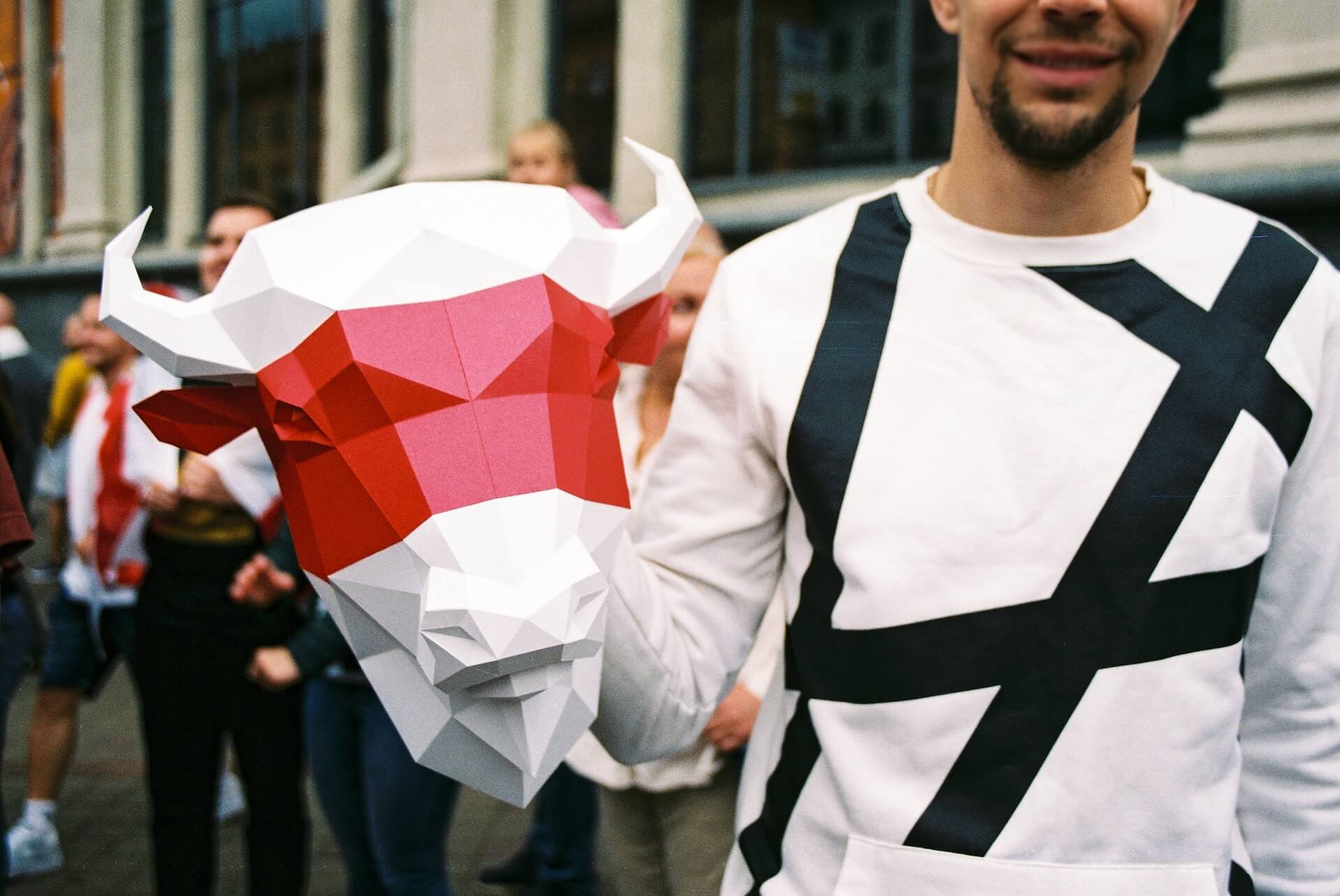
Some opposition leaders described Belarus’ 2020 post-election protests as a revolutionin their anniversary speeches. “A peaceful uprising” seems to be a correct term.
It was a spontaneous rising, in contrast to the 1917 Bolshevik revolution in Russia. The Bolshevik party had a clear ideology, a platform and a charismatic leader in Vladimir Lenin, a professional revolutionary.
Belarusian protesters had no affiliation and no leader. The old mainstream opposition failed to put forward a single candidate and was leaning toward a boycott. Śviatłana Cichanoŭskaja would not believe in April 2020 that she would emerge as a pro-democracy challenger and go on to win the race.
Surprise contender
Cichanoŭskaja sensationally took over the cause of struggle for democracy after police had jailed her husband, presidential hopeful Siarhej Cichanoŭski.
Obviously, she did not have a comprehensive plan how to capitalize on the political momentum generated by galvanized disenchanted people to overthrow the regime, neither before the August 9 poll nor after it, when hundreds of thousands took to the street.
Her campaign was always one step behind. When she declared an ultimatum in October 2020 and called for a national strike, incumbent Alaksandar Łukašenka ordered the closure of businesses that supported the effort. For a long time, her team had an illusion that it could reignite the masses.
If she had called for an all-out strike in August, Łukašenka could have been ousted. However, the regime won the battle for workers during that crucial month.
The presidential candidates’ campaigns failed and has no tools to reach out to the working class. The opposition coalition emerged spontaneously under unpredictable circumstances. Its message and platform were drafted on the fly.
Medieval tactic worked
Hundreds of thousands of Belarusians took part in demonstrations across the country in 2020, whereas opposition politicians had said that 100,000 protesters at Minsk’s central square would be enough overthrow the regime.
Many observers were expecting the regime to fall soon, hoping that police would side with protesters.
2020 proved that simplified approach wrong. Łukašenka and his security forces managed to suppress the uprising and restore control. Medieval methods of compulsion by the force of arms and violence proved effective in the era of sophisticated technologies, at the center of Europe in the 21st century.
The opponents were left frustrated. Many of the most educated and outspoken critics of the regime have been forced out of the country. It is difficult for them to make an impact from abroad. Łukašenka wittingly sacrifices human capital to reign longer.
The émigré opposition centers have found themselves in a conceptual crisis. New Belarus 2023, a conference held by opponents in Warsaw earlier this month, failed to come up with a comprehensive strategy to defeat the regime. It seems impossible to find methods that can be effective during a severe crackdown.
However, it is important for the opposition not to engage in empty and misleading rhetoric, dogmatism and not to end up in a parallel realm. The importance of sanctions or the use of force to change the regime should not be overestimated. It is true that Łukašenka recons with brutal force only. In practice, however, the road to democracy may be long and winding.
Besides, it would be oversimplification to assert that all Belarusians suffer from dictatorship.
In a symbolic and predictable move, the opposition delegates voted to reaffirm Belarus’ aspiration for membership of the European Union. They should keep in mind the strong support in Belarus for an alliance with Russia. This is a serious challenge now that most independent media have been forced into exile.
Belarusian society is extremely polarized with hate speech on the rise among regime stalwarts and their opponents. The two groups live in separate information bubbles. Moscow’s and Łukašenka’s propaganda has gained some ground. Blood-stained security officers will fight desperately to preserve the system.
Stiff headwinds
When it comes to international pressure, sanctions are not the most impeccable and effective tool. Western countries decide on their sanction policies based on their own interests.
The deployment of nuclear weapons to Belarus gives Moscow an additional pretext to intervene to prevent opponents from overthrowing the government.
The view is widespread among the opponents that Belarus’ democratization just hinges on Ukraine’s victory.
Valieryj Sachaščyk, the opposition cabinet’s defense representative, countered that opinion, stressing that any strategy should take into account the possibility that Russia is not ultimately defeated and retains control of some of the occupied territory. Opponents should examine various options and be more flexible.
Regardless of my criticism of the opposition, I am confident that the Vladimir Putin and Łukašenka regimes are doomed. The first Belarusian president’s rule will be just a brief moment in history. But humans measure this period in relation to swift-passing human life and see it as an endless tragedy.
New generations will probably learn at history classes how the 2020 protests brought about the collapse of the regime in the year of … . Was it all worth it? This is a scholastic question. History does not tolerate subjunctive mood.